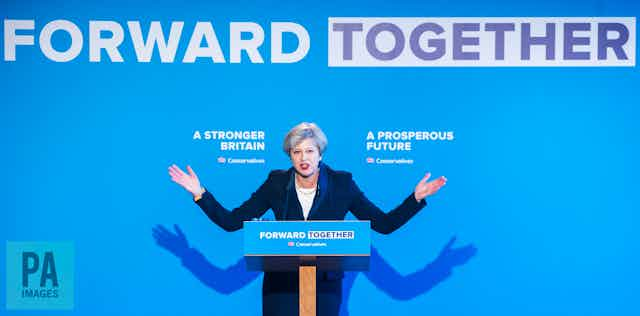Specific, headline-grabbing promises in party manifestos are a fairly recent thing. It was not always so – and it is not something inherent in Britain’s parliamentary system. In fact it is incompatible with it, and the emphasis on such promises has created a misleading impression of the proper role of politicians and parliament.
Under a set of legal and moral obligations, it is the responsibility of governments to govern in what they consider to be in the best interests of the country, rather than fulfil the promises and pledges of their party manifestos. Similarly, it is the responsibility of individual MPs to vote for proposed legislation and to support policies which they believe to be in the best interests of their constituents – and of the country as a whole.
Political parties publish manifestos and make promises, but it is parliament which passes legislation, not political parties. It is governments that govern, not political parties – meaning that the government is a group of specifically elected individuals from a political party, not the broader party itself.
The promises of political parties are empty because they do not have the ability or the authority to pass the legislation or to promote the policies they promise. These are the roles of parliament and government.

When politicians make promises, they create a rod for their own backs. They create a moral obligation to keep them, but that obligation does not obliterate or override their prior and remaining moral obligation to act in the best interests of their constituents and the country as a whole. If a promise they have foolishly made conflicts with that moral duty, they should break their promise.
The good old days
This commitment to making promises and pledges is a recent thing. Consider, for instance, the Conservative party general election manifesto of 1959. Harold Macmillan says in the foreword:
Our policy can be simply stated: prosperity and peace … Vital international negotiations lie ahead and I ask you to continue to entrust them to a Conservative government.
There is not a hint of a specific promise, pledge or vow in the entire, short document.
In the Labour party election manifesto of the same year there are no promises. There are two pledges. One is, “to bring the work to the workers”. In addition, the manifesto says:
We have solemnly pledged ourselves to devote an average of 1 per cent of our national income each year to helping the underdeveloped areas.
It is made very clear that not all the policies outlined in the manifesto are considered to be pledges.
For a politician or a government to uphold or reject a particular policy merely because they had promised or pledged to do so in their party’s election manifesto would be irresponsible.
For instance, referring to Mexico, US President Donald Trump famously – or notoriously – said during his presidential campaign: “I will build a great, great wall on our southern border. And I will have Mexico pay for that wall.”
If Trump sincerely believes there are good reasons for building such a wall, he should persevere with this policy. However, if he is persuaded that it is a foolish policy, he should not try to implement it just because he repeatedly assured potential voters that, if elected, he would promptly do so.
U-turn if you want to
If we make a promise that we shouldn’t have, we shouldn’t compound our error by keeping it. We should be big enough to make a U-turn when we realise our mistake.
For example, if we promise to marry someone yet come to the view it would be a dreadful mistake, we might be obliged to call off the wedding. To go through with the wedding only because we promised to would be foolish and unethical. Unless there is a clear case of cynical political expediency, politicians should be praised, not monstered, for making a U-turn.
The pledges and promises of politicians typically relate to the transfer of public funds from one particular use to some other use. What might seem like a promise to some can be a threat to others. Yet we would hardly say that we are morally obliged always to carry out the threats we make. But, when a politician pledges to, say, introduce a mansion tax, this is a threat to the owners of mansions as much as it is a promise to anyone else.

A pledge to try to ensure that Scotland remains in the single market might be a threat to those in Scotland who voted for the UK to leave the EU, and also to those in Scotland who voted for the UK to remain in the EU but who do not want to be in the single market unless the rest of the UK is too. It can get complicated.
Some promises and pledges are of a contractual sort. Election promises and pledges are not. For instance, the rights and duties of politicians do not derive from a contractual agreement between themselves and the people who voted for them. MPs represent the constituents who did not vote for them just as much as those who did.
They have responsibilities towards these constituents and towards the citizenry in general. It is the central business of elected governments to govern in what they believe is in their citizens’ best interests. If this conflicts with what they have promised or pledged to do, they ought to break their promises and dishonour their pledges.
Politicians are striking a pose rather than a deal when they make their so-called manifesto promises. It is dishonest. It distorts in the public mind the proper roles of the government and of parliament. Instead, politicians should give a straightforward account of their intentions and aims. It may not grab the headlines – but it is, in the end, more honest.

